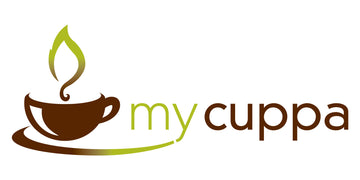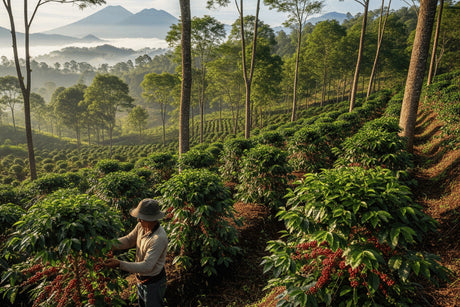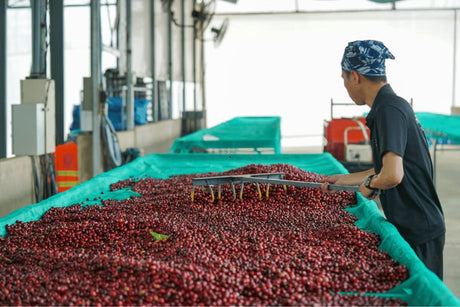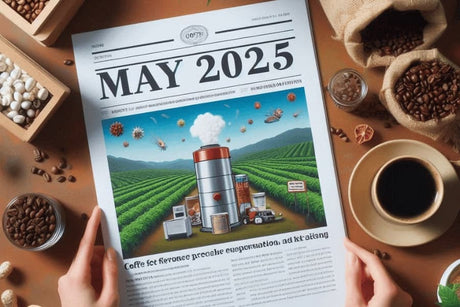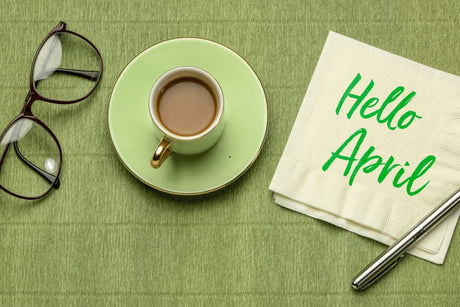May 2025
May is traditionally a period in the coffee industry where the first of many new crops from Central America, Indonesia, and Africa start arriving. However, technically, it's more like June when the bulk shipment lands, with May being the "early harvest" arrival to excite and tease us.
Historically, May also signalled the start of negotiations between Australian roasters and the import brokers for inbound arrivals, e.g. a key trading period.
But this year is remarkably different to any previous time over the last 20+ years.
Why?
For a start, the entire global coffee industry remains stranded in "unchartered waters" with record high prices and ongoing short supply.
Farmers remain indifferent to selling contracts, trying to hold out longer for higher prices. Then you have overseas exporters sneakily stockpiling coffee, holding out for better prices. Conversely, overseas exporters and farmers may breach contracts with our local Australian importers.
So what does all this mean?
Well, the end user for the raw coffee, Australian roasting brands, continue to scratch their heads trying to secure enough green coffee at a price that allows them to "stay in business".
As Trump announced his ridiculous and short-lived reciprocal tariffs on all trading partners, April saw a roller coaster ride in coffee pricing. Any short-term dip in the global coffee index has since recovered to remain at all-time highs.
The once vibrant and healthy local spot market remains "indefinitely closed", with most Australian coffee brands left holding significantly less green coffee than normal.
Overall quality levels are declining due to importers bringing in the more affordable lines.
It's hard to imagine that just 18 months ago, everyone was fixated on the "best tasting coffee", yet now it's just about "decent value coffee".
How is this affecting us @myCuppa?
It's naive to contemplate any coffee brands are immune to the volatile machinations of the global coffee disruption and upheaval.
At myCuppa, we are similarly affected by the changes in our industry, and it's not only a price problem but also a supply issue.
For example, in the last 12 months, our green (raw) bean pricing has increased by $8 per kilo. That's an average figure where some origins have jumped a lot higher and a few slightly lower.
So, for us @myCuppa, a few more origins are about to be added to the "out of stock" list unless some miracle occurs soon.
Costa Rica, Burundi, and Tanzania are in immediate danger of dire shortages, with African origins likely to be zeroed within a month or so and Costa Rica probably by late July.
But it's not all doom and gloom.
myCuppa is always searching, hunting and discovering new coffees.
Soon, we will proudly unveil exciting new coffees from Timor, Sulawesi, Java, and Flores, hopefully in early June.

Mycotoxin Madness
More than 15 years ago, we wrote the first article in Australia on mycotoxins in coffee.
Back then, myCuppa was one of the few online providers of premium quality, freshly roasted coffee, and we also know our stuff pretty damn well!
Our objective back then was to dispel the rising tide of "paranoia'" from the untrue and fake hysteria published on the internet - mostly claiming all coffee was horrendously mouldy!
So wrong and incorrect.
In 2010, Instagram barely had a twinkle in the eye of its creators. Yet, soon, we faced a tsunami of tragic souls brainwashed by conspiracy theories claiming coffee contained toxic mycotoxins and their health was suffering.
I've lost track of the thousands of "Contact Us" page messages asking, " Is your coffee tested for mycotoxins because I have a health issue and don't want mouldy coffee?".
Each time we opened these messages, our jaw dropped, and our blood pressure rose to seriously dangerous levels.
WTF. Are these people so dumb and stupid that they freely believe random and unproven conspiracy theories about all coffee being mouldy, toxic and life-threatening?
Our coffees, and I'm also assuming the majority of other brands' coffees, are stringently assessed for quality. The coffees are inspected, tested, roasted, analyzed and then Quality Assured before being passed for sale.
Nobody buys mouldy coffee. For over 18 years, I've never seen mouldy coffee.
I've tried to stay away from disputing these claims because I know it's going to affect my mental health dealing with close-minded idiots with no idea what happens in coffee supply chains.
But it's reached the point where no day passes without some random person asking if our coffee is tested for mycotoxins because they don't want "mouldy coffee".
Seriously? Do you think we have mouldy coffee in our warehouse, just festering and growing mould like some teenage science experiment?
So here's a couple of blowtorches
- No testing for mycotoxins occurs at any point in the coffee supply chain. Anyone claiming they have mycotoxin-free coffee is just telling big fat lies to gain a fake advantage in trying to differentiate their product. Thank you for buying it and wasting your money paying a premium for nothing.
- 99+% of brands selling coffee in Australia rely upon the same group of a dozen importers. Only the mega-large brands self-import and even that's largely exaggerated because they only self-import a fraction of their overall volume. There are only three brands in Australia that self-import in decent volumes. So here we have everyone else operating from the same level playing field. All our raw coffees have shipped in the same containers, with the same conditions - why are some sellers of "mycotoxin-free" coffee claiming they have entirely different coffee? They don't; it's just that they can get away with making false claims, and nobody will hold them to account.
- Storage of raw coffee is critically important. Most Australian coffee brands have zero temperature control in their warehouse, e.g., they store their raw coffee without any cooling or at heights on warehouse racks where it's a lot warmer during the daytime, sometimes by up to 15 C in summer. The added heat and humidity will result in the potential risk of mould over extended periods if the coffee is left unused. So here we have two different factors - time and temperature. At myCuppa, we have full temperature control of our entire warehouse. Located in Melbourne, where the humidity is lower, we also turn over our raw coffee quickly, often within weeks.
- Nobody has a structured testing regime for mycotoxins - even globally, such testing or analysis does not exist. OK, so how do you apply testing criteria to the coffee? Is every bag going to be tested, and will every kilo be tested? Nope. It's expensive to run laboratory testing, and often, brands claiming they have done such tests are using a single test and playing a game to fool you into thinking they have some regular testing program. It's a smoke screen.
- Has anyone read Dr Illy's extensive thesis on eliminating mycotoxins during roasting? Yeah, I didn't think so.
- Mycotoxins remain the "snake oil" of the coffee industry, where fringe players continue to peddle their "wellness virtues" whilst preying on the dumb, stupid and vulnerable folks who are searching for the "solution" to their imaginary health issues. Please don't pay the ransom for coffee, which is the same as everyone else, or it could be worse.
- Shop with confidence at myCuppa - with our 20-year history of quality and more than 1 million happy deliveries, our Tier 1 facility is one of only 4 in Australia with full temperature control, meaning all our coffees are fresh, clean, healthy and tasty.
